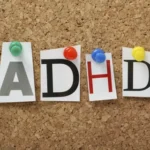Anxiety is a complex mental illness that affects the body and mind and can take many different forms. Although the physiological manifestations of anxiety, including elevated heart rate and perspiration, are frequently talked about, the psychological effects are just as crippling. These cognitive symptoms can include trouble focusing, memory issues, racing thoughts, and excessive concern. It is essential to comprehend these signs in order to effectively manage and treat anxiety. This article explores the cognitive symptoms of anxiety, their implications, and coping mechanisms.
Recognizing Cognitive Anxiety Symptoms
The mental processes that are impacted by anxiety are referred to as cognitive symptoms of anxiety. These encompass our cognitive, perceptual, memory, and problem-solving abilities. These processes can be distorted by anxiety, which can result in a variety of cognitive issues.
One of the most prevalent cognitive signs of anxiety is racing thoughts. This word refers to an overwhelming, unmanageable, and fast flood of ideas. People who have racing thoughts frequently struggle to concentrate on a single concept or task because their minds are always racing.
Impact:
Having racing thoughts can make it difficult to carry out daily duties, pay attention in class, or make decisions. Additionally, they may be a factor in the bodily symptoms like tension in the muscles and headaches.
Management:
Methods including cognitive-behavioral therapy (CBT), deep breathing exercises, and mindfulness meditation can help quiet the mind and slow down thinking.
Excessive Worry:
Another classic cognitive symptom of anxiety is excessive worry, sometimes known as persistent worrying. People who suffer from anxiety frequently worry about a wide range of things, from mundane tasks to imagined future events. Frequently, this concern is out of proportion to the real danger or threat.
Impact:
Prolonged anxiety might cause weariness, trouble focusing, and disruptions in sleep. It may also intensify the bodily manifestations of anxiousness.
Management:
It might be helpful to employ cognitive-behavioral techniques like questioning illogical ideas and concentrating on fixing problems rather than dwelling on them. Moreover, methods like designating a dedicated “worry time” each day can aid in reducing and controlling excessive worry.
Anxiety can seriously hinder one’s ability to concentrate. It’s difficult to concentrate on the current activity when concern and racing thoughts consume the mind. Academic achievement, productivity at employment, and even routine hobbies like watching television or reading might be impacted by this.
Impact:
Inability to focus can result in subpar work or academic performance, damaged relationships, and a general decline in life satisfaction.
Management:
Using apps or planners as organizational aids, breaking down activities into smaller, more manageable steps, and engaging in mindfulness exercises can all help with attention. Exercise on a regular basis and good sleeping habits are also advantageous.
Memory Issues Anxiety can have an impact on memory, both short- and long-term. Anxiety-related stress hormone releases can obstruct the brain’s capacity to store and recall information.
Impact:
Memory issues may cause one to overlook crucial meetings, due dates, or assignments. This can lead to a vicious cycle of increased tension and anxiety.
Management:
You can control forgetting by using memory tools like calendars, lists, and reminders. Memory function can also be supported by cognitive exercises and a healthy lifestyle that includes frequent physical activity and a balanced diet.
Negative Thought Patterns:
Catastrophizing, or expecting the worst, and black-and-white thinking, or perceiving things as either all good or all bad, are two examples of negative thought patterns that are frequently associated with anxiety. These tendencies might intensify anxiety symptoms and warp reality.
Impact:
Negative thought patterns can cause anxiety to rise, hopelessness to fade, and low self-esteem. Decision-making and problem-solving skills may also be impacted.
Management:
Addressing negative thought patterns is one area in which cognitive-behavioral treatment, or CBT, is very successful. It entails recognizing and disputing illogical ideas and substituting them with more sensible, realistic ideas.
Indecisiveness People who experience anxiety frequently find it difficult to make choices. Analytical paralysis can result from overanalyzing possible outcomes or from the dread of making the incorrect decision.
Impact:
Being indecisive might result in stress and lost chances. Relationships may suffer, and growth on both a personal and professional level may be impeded.
Management:
Reducing the amount of information taken into consideration, establishing timelines for choices, and consulting with reliable people can all be helpful. Confidence can also be increased by practicing decision-making in low-stakes circumstances.
The Greater Effects of Mental Illnesses
Anxiety’s cognitive symptoms can have an impact on a person’s relationships, career, and general well-being in addition to directly affecting them.
Interpersonal Relationships:
Negative thinking and excessive concern are examples of cognitive symptoms that can impair relationships. Anxiety might cause someone to retreat from social situations or become unduly reliant on others for comfort.
Impact: Misunderstandings, arguments, and loneliness may result from this.
Handling:
Being upfront and honest with loved ones about anxiety and its effects can help to build understanding and support. Family or couple’s counseling may also be helpful.
Work and Academic Performance Concentration issues, indecision, and memory issues can all have a big influence on how well a person does at work or in the classroom. Deadlines that are missed, subpar grades, or decreased productivity may result from this.
Impact:
This may intensify anxiety and stress cycles, which in turn aggravate cognitive problems.
Management: To help manage these symptoms, employers and educators might offer accommodations like flexible deadlines, quiet workspaces, and extra support.
Physical Health:
Physical health can be impacted by the stress brought on by cognitive anxiety symptoms. Heart disease, gastrointestinal problems, and hypertension are among the illnesses that can be brought on by prolonged stress.
Impact:
This may lead to a vicious cycle in which anxiety is exacerbated by physical health problems and vice versa.
Management:
To improve general health and lessen the symptoms of anxiety, regular medical checkups, a balanced diet, exercise, and stress-reduction methods are recommended.
Entire Techniques for Handling Cognitive Anxiety Symptoms
Anxiety’s cognitive symptoms must be managed with a multimodal strategy that takes care of the body and mind. Here are a few all-encompassing tactics:
The most effective treatment for anxiety is cognitive-behavioral therapy, or CBT. It assists people in recognizing and altering harmful thought and behavior patterns. Additional treatment modalities that have been shown to be successful include acceptance and commitment therapy (ACT) and dialectical behavior therapy (DBT).
Medication:
Benzodiazepines and selective serotonin reuptake inhibitors (SSRIs) are two examples of medications that can help control anxiety symptoms. A healthcare provider should prescribe and oversee these.
Meditation and Mindfulness Mindfulness exercises, like yoga and meditation, can assist people in being mindful and lessen the effects of their racing thoughts and excessive worry. These techniques can enhance focus and encourage relaxation.
Lifestyle Modifications:
A healthy diet, regular exercise, and enough sleep are essential for anxiety management. Limiting alcohol and caffeine use can also be beneficial because these drugs can make anxiety feelings worse.
Stress Reduction and Anxiety Management Strategies:
Strategies including progressive muscle relaxation, guided imagery, and deep breathing exercises can help lower stress and control symptoms of anxiety. Discovering interests and pursuits that lead to happiness and relaxation is also advantageous.
Establishing a robust network of friends, relatives, and experts can offer psychological assistance and useful guidance. Online or in-person support groups can also foster a feeling of camaraderie and mutual understanding.
Education
Those who learn about anxiety and its cognitive symptoms will be better equipped to manage their mental health. Reduced anxiety and better management can be achieved with knowledge about the illness and useful coping mechanisms.
In summary
An individual’s life can be significantly impacted by the cognitive symptoms of anxiety, which include racing thoughts, excessive concern, trouble concentrating, memory issues, negative thought patterns, and indecision. Comprehending these indications and their consequences is essential for efficient handling. People can effectively manage the cognitive symptoms of anxiety and enhance their general well-being by combining therapeutic approaches, medication, mindfulness practices, lifestyle modifications, stress management techniques, support networks, and education. For those impacted by anxiety, early intervention and a thorough strategy can result in better outcomes and a higher quality of life.




